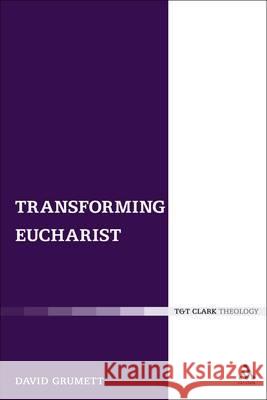Transforming Eucharist » książka
Transforming Eucharist
ISBN-13: 9780567032836 / Angielski / Twarda / 2014 / 256 str.
Since the middle of the twentieth century, theologians have tended to regard the eucharist in communitarian terms as the means by which the worshipping community unites into one body. The eucharist, in this interpretation, both signifies and builds church community. This focus was encouraged by the Second Vatican Council and has been central to the renewal of eucharistic participation in various Christian denominations, among Catholics in the work of Henri de Lubac and Anglicans in that of A. G. Hebert. In recent theology there has been interest in semiotic/epistemological interpretations of the eucharist and revived appreciation of its political implications. In these different discussions the significance of its materiality has been curiously overlooked. David Grumett proposes a creative reassessment of the matter of the eucharist, tracing and unsettling insights from patristic, Thomist and Tridentine theology and engaging these with modern figures like Maurice Blondel, Pierre Teilhard de Chardin, John Zizioulas and Alexander Schmemann. What will emerge will be a model of the eucharist and of the conversion of eucharistic matter founded on human experience and on a high valuation of active, creative and redemptive human living. This vision poses challenges to both church and society, providing the basis for a political critique of modern notions of consumer society but equally of the institutional ownership of sacraments by the institutional church. It will engage the developing interdisciplinary field of ritual studies, but also from a theological viewpoint reaffirm the crucial importance of human embodiment as rooted and revealed in the transformative action of Christ.











